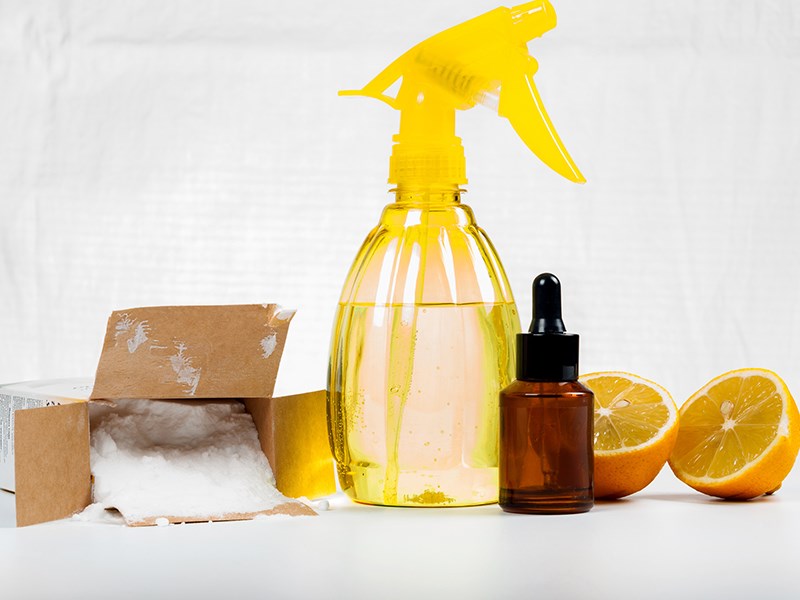Have you ever wondered whether household cleaning products are doing you and your family more harm than good? If so, you are not alone or without good reason to take a closer look at what you are spraying, scouring, washing and sanitizing your home with.
The list of questionable ingredients is long. It includes phthalates, a hormone disruptor in many air fresheners; perchlorethylene, a neurotoxin found in dry-cleaning solutions; triclosan, an aggressive antibacterial found in most liquid detergents that can create drug-resistant bacteria; quaternary ammonium compounds, which are found in fabric softeners and also capable of creating resistant bacteria; ammonia, an irritant found in polishing agents that can cause toxic gases if mixed with bleach; and chlorine, a possible thyroid disruptor that is often present in household cleaners.
Fortunately, there are some alternative cleaners likely already around your home that can be used safely and effectively.
* Baking soda can clean, deodorize and scour surfaces.
* Lemon is one of the strongest grease cutters around and its acidity can kill many household bacteria, not to mention its pleasant odour-masking capacity.
* White vinegar cuts grease and is able to remove mildew, odours and is a natural fabric softener.
* Cornstarch can be used to buff surfaces and deodorize.
* Citrus solvents can clean paint brushes, oil, grease and even some stains.
* Borax (sodium borate) is able to clean, deodorize, disinfect, soften water and clean painted walls and floors.
* Newspaper is often more effective than a cloth for cleaning glass.
* Toothpaste is great for polishing silver.
* Tea tree oil or Thieves Oil can be added to cleaning recipes as powerful germ killers.
* Lavender or other fragrant essential oils are a great addition to homemade cleaners.
By raiding your cupboards and looking under the sink, you may find all the ingredients you need in order to ditch chemically laden cleaners. The learning curve is short, as there are usually only a few ingredients per natural cleaning recipe and there are many to choose from online.
Once you get into the habit, you will likely see big savings for making products at home. Your recycling box will be less cluttered, too, as plastic-heavy packaging of many cleaners can be replaced with glass jars or reusable spray containers.
Start this week by replacing one of your household cleaners with an earth-friendly alternative you can make at home.
Let’s Talk Trash is Powell River Regional District’s waste-management education program.



